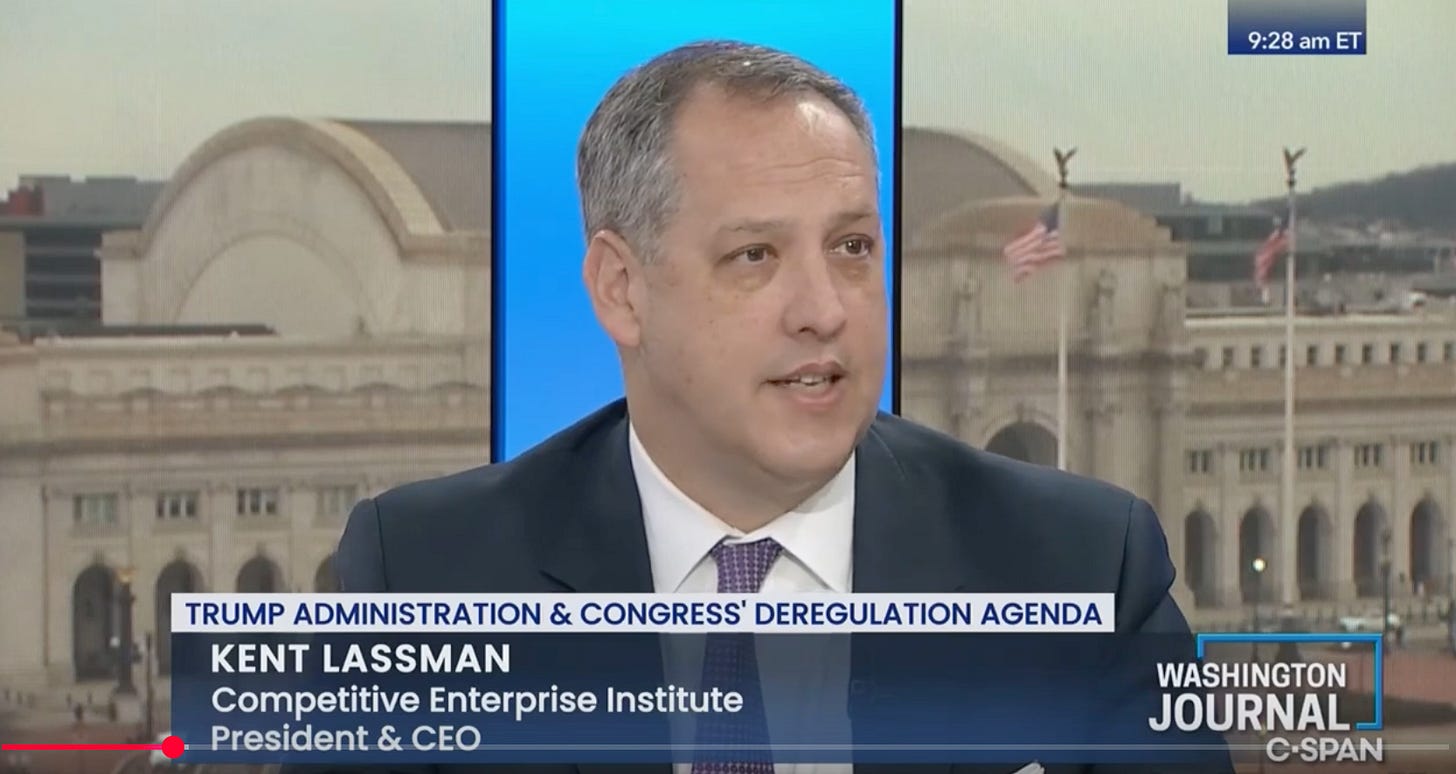Right turns
When the Trump administration pursues sound public policies, FreeCons cheer
In recent weeks, we Freedom Conservatives have been highly critical of the Trump administration’s unforced errors on tariffs and other economic-policy matters.
We predicted that jacking up taxes on imports would spook financial markets, alienate longtime allies, and impose significant costs on American households and businesses.
We also argued that the uncertainty surrounding Trump’s policy shifts — announcing one set of tariff rates, then changing them, then expanding and increasing them, then pausing, and so on — would impose its own economic and political risks.
Moreover, FreeCons haven’t been shy about holding the administration and Republican Congress accountable on other legal and fiscal issues. While supporting the goals of DOGE and other budget-efficiency initiatives, for example, we’ve urged policymakers to be methodical — and not to overlook the main drivers of federal deficits, including entitlements.
Nevertheless, our Freedom Conservatism project isn’t a political pose. We don’t do clickbait. We are serious about building a broad, dynamic, and principled American Right that can not only win elections but also govern effectively afterward.
Within such a coalition, there will be differences of opinion and emphasis. We accept that fact. We simply don’t believe a successful American conservatism can be formed or sustained if we get fiscal policy so wildly wrong.
To criticize the Trump administration’s reckless tax increases is not to dismiss its more-promising policy initiatives. Today, we feature some of those prudent Right turns — and the FreeCons supporting them.
Regulatory sediment
Kent Lassman is president and CEO at the Competitive Enterprise Institute and one of the leaders of the Freedom Conservatism project.
He previously worked on regulatory policy and government reform at FreedomWorks, the Progress & Freedom Foundation, and the American Legislative Exchange Council.
In a recent New York Times article on the Trump administration’s ambitious campaign of deregulatory initiatives, Lassman predicted that a wholesale review of federal rules would weed out those that slow down the government and the economy, including requirements to post information by outdated methods like telegram and cable.
“It’s like sedimentary rock that’s been building up for hundreds of years,” he told the Times.
In a separate post, Lassman also praised an executive order from President Trump that ended collective bargaining with public sector unions in certain national-security agencies.
“Collective bargaining by public sector unions is a bad idea that is due for the dustbin,” he wrote.
“Unions sit on both sides of the negotiating table because they are both a political constituency with considerable electoral clout and beneficiaries of unbalanced contracts. No one should be represented on both sides of a negotiation, especially when it leaves the rest of America on the outside, paying the bill.”
Window of opportunity
Tim Rice is deputy managing editor at The Daily Wire and appears regularly on its morning podcast. Formerly a senior editor at the Washington Free Beacon and health-policy director at the Manhattan Institute, Rice is a FreeCon signatory.
In a recent article for The Spectator, he praised President Trump’s creation of a task force to address the crime problem in the nation’s capital.
“Beautifying the parks, cleaning up the homeless encampments, making it possible for the police to enforce the law without fear or retribution or reprisal — it sounds like Trump wants to try his hand at broken-windows policing,” Rice wrote.
“That’s not at all surprising. Living in New York in the 1990s, Trump watched as the revolution in policing and public order — which held that targeting small crimes like public urination and committing resources to cleaning up graffiti would reduce crime and make neighborhoods safer — rapidly transformed the city from crime-ridden hellhole to family-friendly metropolis.”
“The broken-windows revolution was also likely good for Trump’s business. Now, his business is running the federal government. Why wouldn’t he try what worked before?”
Renewed hope
Joe Pitts is a policy analyst in Washington and program coordinator at the American Enterprise Institute. Chairman and CEO at the Western Tribune, Pitts is also a FreeCon signatory.
In a recent piece for The Dispatch, he wrote about the rise of the “tech right” — the burgeoning movement of innovators and entrepreneurs led by the likes of Elon Musk and Palantir co-founder Alex Karp.
“We should salute the tech right for conjuring a renewed hope in humanity’s capabilities, because we in our postmodern malaise are in desperate need of such optimism,” Pitts wrote.
But the movement needs to articulate more clearly the “vision of human flourishing” they are trying to make a reality. Pitts recommended that they seek to revive the virtues of civic republicanism.
“We need more people in government and industry thinking about making things happen instead of merely navigating ever more complex red tape,” he wrote. “People must not only be made to feel that their actions can bear fruit in the world — they must be empowered such that this is the case. They must be enabled to govern their own lives and learn how to govern others.”
Members of the tech right should also support “prominent podcasts and news shows to broadcast their views,” Pitts argued, as well as “political candidates who are interested in making their argument to the American people.”
“Their theory of American decline is among the most convincing out there. They are grasping at real solutions. They have the money and means to make an enormous impact.”
In the mix
• In the New Orleans Advocate, FreeCon signatory Quin Hillyer commemorated the 250th anniversary of the battles of Lexington and Concord by reminding readers of the historic significance of the American Revolution.
“Too many of us today take liberty for granted,” wrote Hillyer, a former editor at the Washington Examiner, Washington Times, and American Spectator. “We fail to appreciate how rare in human history it is. We fail to realize how easily it can evaporate or be forcibly trampled.”
“It should awe us that so many in 1776 pledged their ‘lives, fortunes, and sacred honor’ to create centuries of liberty.”
• In National Review, FreeCon signatory Dan Klein explained that the defective term “trade deficit” leads astray policymakers and voters alike.
“On net, more dollars leave the United States by Americans’ purchases of imports than come in by Americans’ sales of exports,” wrote Klein, who leads an Adam Smith program at George Mason University. “Such a situation is termed a current-account deficit, or ‘trade deficit.’ Calling it a ‘deficit’ elevates dollars above what the dollars buy.
“But the terminology could be formulated the other way around, in a framework of husbanding stuff. Then, under the same condition of imports exceeding exports, the focus is on the stuff that, on net, is flowing into the United States. Now we view the exact same world but see a surplus.
“The point is not to repeat the important truth that the trade deficit corresponds to the capital-account surplus. Rather, the point is that the whole conventional framework assumes that the goal of international trade is to husband money rather than real goods and services.”
• In USA Today, Pope Foundation president John Hood wrote that defending free enterprise isn’t the same thing as lobbying for “business.”
“In the long run, sustained gains in living standards — in how much we receive in take-home pay, and what goods and services we can purchase with it — are possible only if our labor gets increasingly productive,” wrote Hood, one of the leaders of the Freedom Conservatism project. Capital investment is “one way that happens,” and primarily occurs in the private sector, not the public sector.
“When conservatives advocate smaller government,” he concluded, “we don’t do it because we are ‘pro-business.’ We do it because we are pro-progress.”



